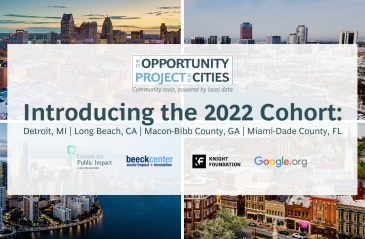
Five things we recently learned about government failure

Universities enjoy significantly more autonomy than schools
Share articlePolicy objectives do not always square with what can be achieved on the ground
Share articleSome have underestimated the extent to which the public still wants government to be very active
Share articleWe put our vision for government into practice through learning partner projects that align with our values and help reimagine government so that it works for everyone.
On days like today, when the sun is shining and from my office window I can see throngs of students taking advantage of all our campus has to offer, central government in Whitehall feels a million miles away. In fact, the town of Reading is barely 40 miles from my old office in the Department for Education (DfE).
Of greater significance than geography is the autonomy that Reading and other British universities enjoy. Although the vast majority are private, ours are institutions that make a major contribution to the public good and, to a greater or lesser extent, still receive some government funding or support. However, we enjoy significant autonomy and ministers have nothing like the same level of influence or oversight that they do in the schools system.
But that's not to say that there is little pressure. The academic world is a pretty competitive place: everything from research grants to the best students are up for grabs. There is no room for complacency when governments across the world, particularly in Asia, are investing in higher education. And complacency is also a risk that we must guard against when it comes to the future of public services.
For those in central government, it's always a challenge to know what's happening on the front line. When I was DfE permanent secretary people would point out that I could call on my experiences as a teacher and head teacher. But - while it pains me to admit it - that was quite a long time ago. And every day in government made it a day further away.
Certainly, frontline workers can often wonder why government leaders don't see the world through their eyes. The disconnect means that policy objectives from the centre do not always square with the reality of what can be achieved on the ground. A good example of this is the British government's recent climbdown on its plans to force all schools to become academies. Without getting into a debate about the rights and wrongs of this policy, it shows how a policy aim at ministerial level can run into the roadblock of reality when you don't have sufficient support among colleagues in Parliament or amongst voters themselves.
And this is a key point. You can be the boldest and bravest of reformers but even then you have to keep the public and professionals with you. How to go about building a consensus is a longstanding challenge. Take the National Health Service, for example. A revered and deeply rooted component of British everyday life, woe betide the political party that seeks to alter its founding principles that that it should meet the needs of everyone; be free at the point of delivery; and be based on clinical need, not ability to pay.
Successive governments have attempted public service reforms but many have foundered because they haven't won the support of its million-strong workforce. You just can't push through reform via the efforts of a small band of men and women in Whitehall. Indeed, the conceit that you can, has been a compelling example of ‘group think' amongst the political classes on both the left and the right. Unfortunately, we still haven't cracked the issue of how political reformers - who genuinely want to improve systems - should go about building alliances within services to bring about change.
I also think that some public service reformers have underestimated the extent to which the public still wants government to be a very active player. This is not to argue for a return to the old statist approach to command and control, but voters are rightly wary of government just standing back in the hope that the market will prevail. The public is more nuanced than that. Government should not be seen as part of the problem but actually as part of the solution.
To this end, we are likely to see local government organisations assume greater responsibility in the years ahead because trends such as devolution and mutualisation are likely to intensify. Voters are far more likely to pay attention to how hospitals, schools or council are performing than to abstract ideas of choice and competition. All politics is local, after all.
This means that - in the UK at least - those advocating for more large scale privatisations or outsourcing of public services are likely to be disappointed. The appetite just isn't there for this type of change. The performance of these services is far more important. What matters is what works - the school that achieves consistently good grades, the hospital that reduces waiting times and so on.
This takes a constant focus and determination to not let standards slip. And for this you need a reasonably activist government that energises and catalyses improvements from within the system, rather than one that believes any advances can stem only from the outside.
It can be done; I've seen it done; and I believe it will be done long into the future.









